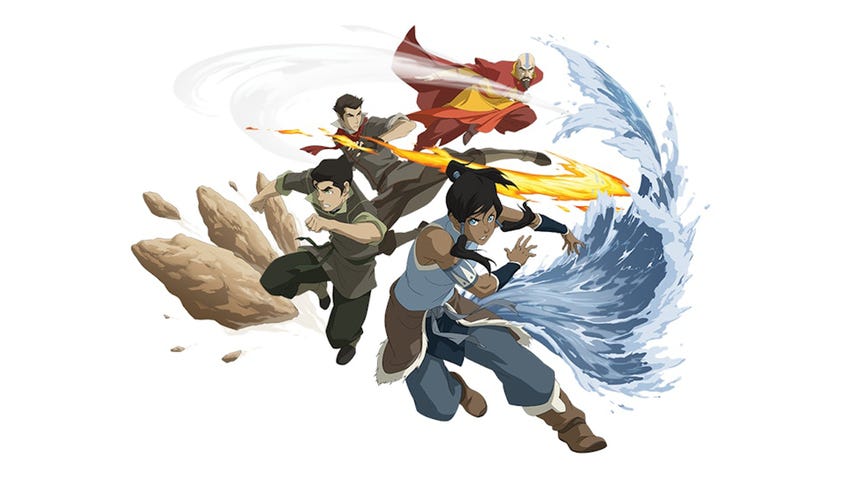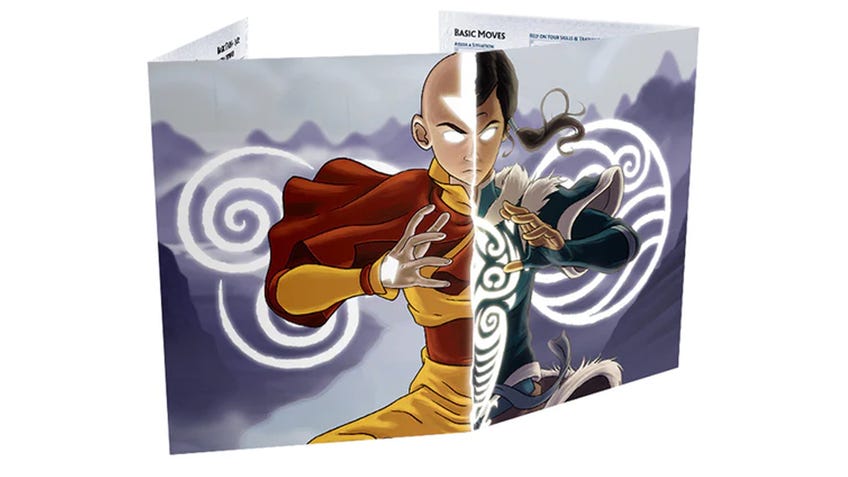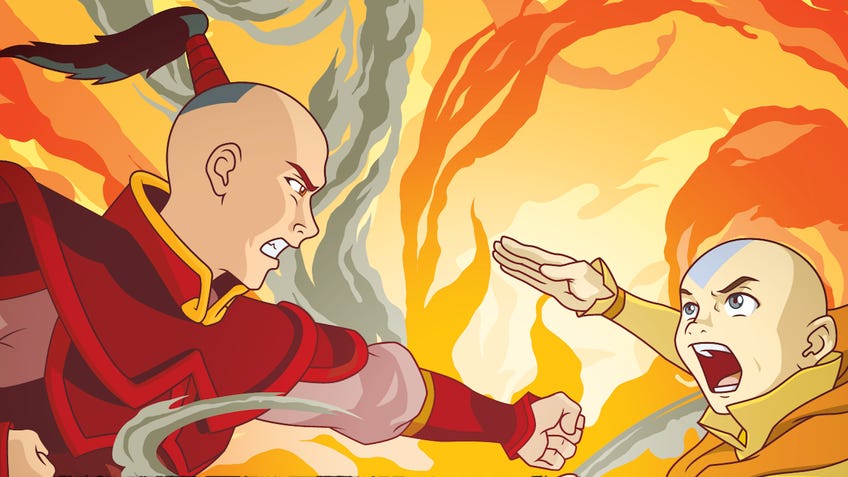The Avatar: The Last Airbender roleplaying game succeeds where the live-action series fails
Expansion over imitation.
I’ve not watched the live-action Avatar: The Last Airbender series because I don’t need to. I knew I didn’t need to ever since it was first announced.
I came late to watch Avatar: The Last Airbender - an animated series by Nickelodeon about a boy called Aang who must defeat tyrannical ruler Fire Lord Ozai to emancipate his world. However, seeing it as an adult in her mid-twenties did not remotely diminish its impact. The Last Airbender is an excellent series that does an incredible job of balancing its light-hearted and goofy aspects with the more serious, dramatised ones. By its climax you care a great deal about its characters and their fates, all thanks to how consistently good the show is.
Watching a live-action version of The Last Airbender doesn’t just feel like a waste of time because the animated series stands on its own as a great piece of television, but also because it entirely misses the point of what makes the Avatar franchise so good - it’s ability to support original stories.
Besides The Last Airbender, there is a follow-up television series called The Legend of Korra, as well as a series of comic books and novels that have focused on various events outside of the initial series. Additionally, in 2022 it was announced that three separate animated films set within the universe of Avatar had been put into production - including one focusing on the characters of The Last Airbender several years after the end of the first series, a film centring on Zuko and another set during the era of Avatar Kyoshi. A new animated series set after the events of The Legend of Korra and focusing on the next Avatar has also been teased.
Avatar Legends offers players the opportunity to explore entirely new angles to these familiar setpieces and environments.
I am far more excited about all of these upcoming Avatar projects than Netflix’s live-action series - which has since been renewed for a second and third season - not only because they’re animated but also because they look to tell brand-new stories. Though the majority of them feature characters we’re already familiar with, they’re still promising to show us parts of their lives we haven’t seen yet - hopefully unlocking new aspects of their characters.
Watching brief glimpses of Kyoshi in both The Last Airbender and The Legend of Korra has always made me fascinated about her character as a hands-on Avatar who was more willing to interfere in politics than some of her predecessors or successors. Getting to know Aang’s children in The Legend of Korra has similarly peaked my interest in watching the Avatar as an older, potentially more reserved person that had to embrace the very different responsibilities of shifting a continent from wartime to peace. These kinds of stories promise to do what the Avatar series does best: which is to depict how characters and relationships react when they’re thrust into different, highly dramatic, situations.

The Avatar Legends: The Roleplaying Game does something very similar to this, with players being invited to create their own characters and stories within the franchise’s varying time periods. Each era of Avatar presents its own unique series of potential conflicts: from the rise of Fire Nation nationalism in Avatar Roku’s world to the tension between technology and spiritualism in Avatar Korra’s time, players have plenty of options when it comes to exploring different possible narratives.
It’s ultimately Avatar’s propensity for enabling excellent storytelling, character development and relationship drama that make it great.
Though players can set their games during the events of The Last Airbender’s 100 year war or within The Legend of Korra’s Republic city, players aren’t encouraged to simply play out the same stories from the existing series but with their own characters. Avatar Legends offers players the opportunity to explore entirely new angles to these familiar setpieces and environments, shedding light on places that the previous stories haven’t yet had the opportunity to do so.
The fantasy roleplaying game sees people picking from a selection of playbooks built around different character archetypes: such as The Bold, someone who is underestimated by others and wants to prove their worth, or The Destined, a character who has the weight of great expectations loaded onto their shoulders. Fans of Avatar will have undoubtedly seen aspects of these archetypes in characters like Sokka and Aang, but they form their very basic building blocks - the versions of the characters at the beginning of the show - and so are meant to be the foundation of further growth and development, as we see in Sokka and Aang throughout the series.

Instead of featuring a menu of element-bending or weapon-wielding techniques, the playbooks in Avatar Legends offer different ways for the player characters to interact with each other and other characters they meet. ‘Moves’ in the TRPG revolve around either helping to rebalance others’ wants and needs or deliberately unbalancing them - whether to convince them to help you, tricking them into believing you, undermining their authority or comforting their pain. Even combat in Avatar Legends is focused around setting up and playing out dramatic set-pieces during a battle, rather than the martial arts and element-bending the franchise is known for.
But it is a fundamental misunderstanding that Avatar’s appeal is in bending, spirits, monsters, animal-fusions and other worldbuilding elements. Whilst they certainly give the franchise a unique flavour, it’s ultimately Avatar’s propensity for enabling excellent storytelling, character development and relationship drama that make it great. Retelling old stories doesn’t do anything to serve this ethos, which is why the live-action Avatar series does not feel like it understands the franchise it’s adapting and ultimately fails where Avatar Legends succeeds - which is in devoting itself to the creation of new stories.
Which is why I’ll be playing more Avatar Legends instead of watching the live-action Netflix series.
Buy Avatar Legends: The Roleplaying Game on Zatu.




